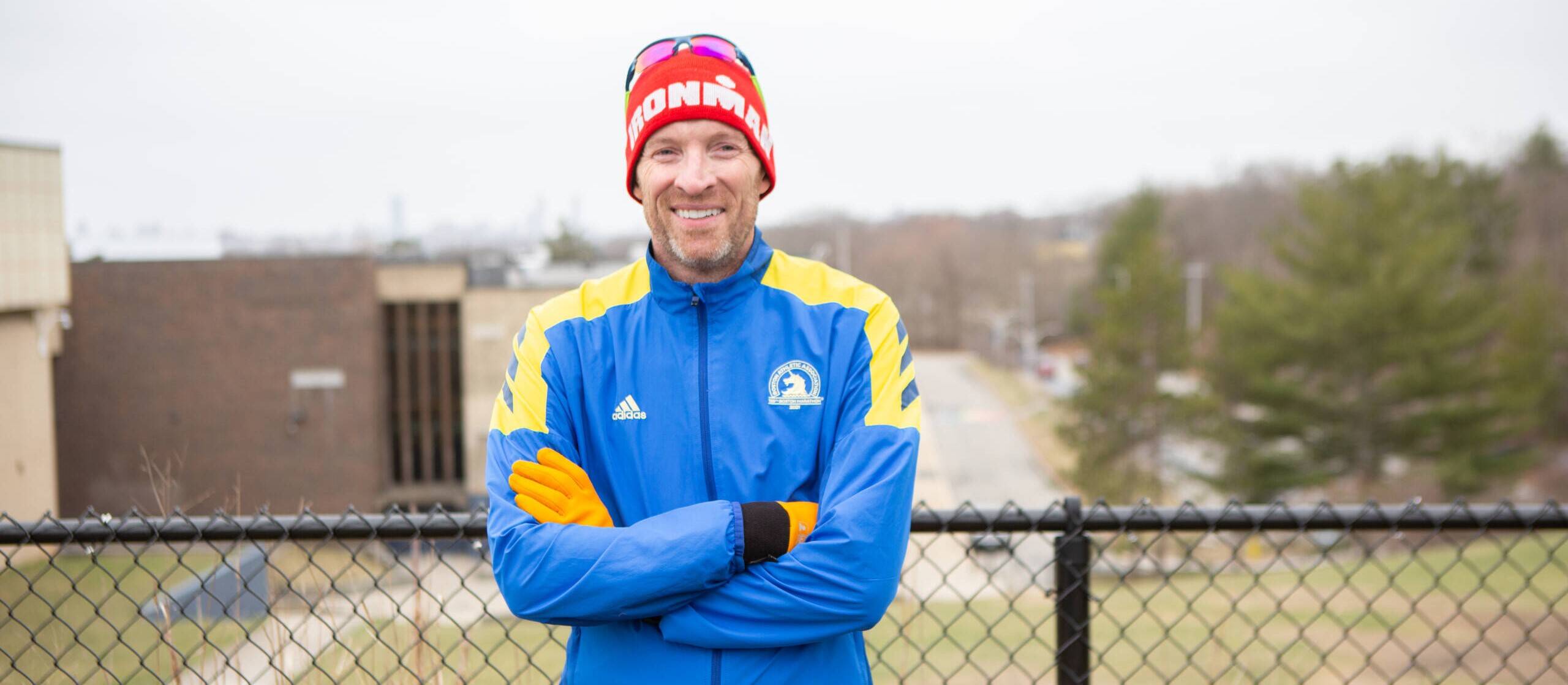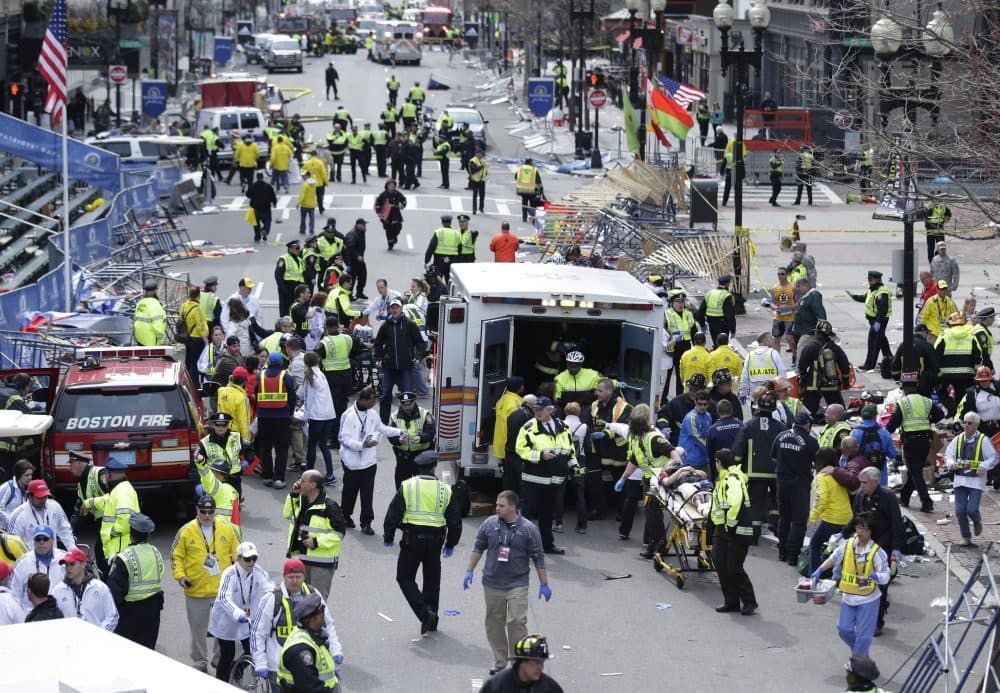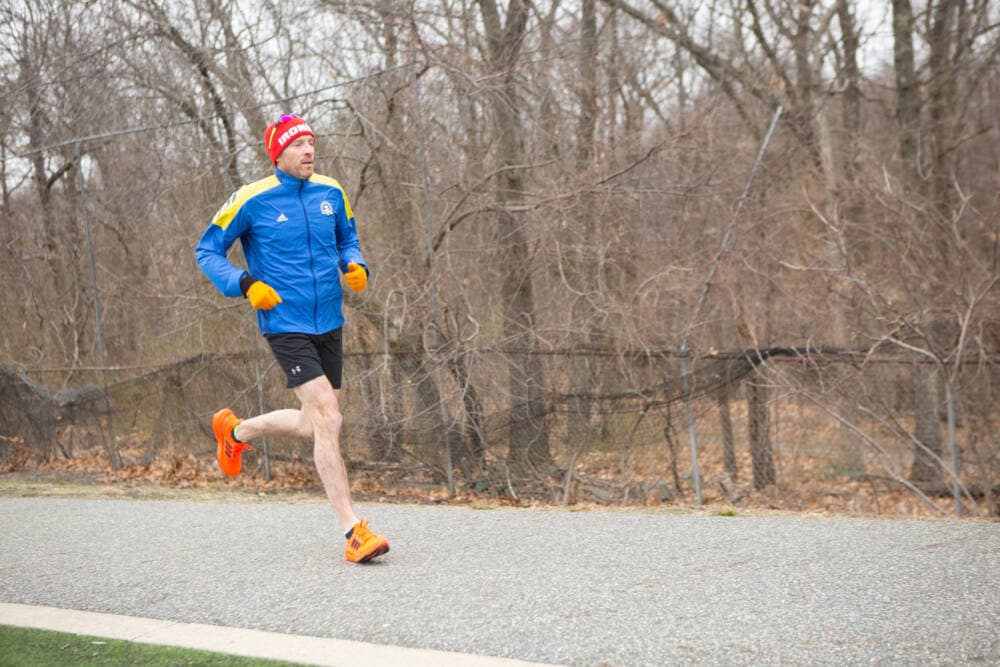Advertisement
A decade of resilience: Trauma surgeon reflects on the Boston Marathon, the bombings and the survivors

Among the 30,000 athletes competing in Monday's Boston Marathon will be Dr. David King, a trauma surgeon from Massachusetts General Hospital. He'll be running the race for the 14th straight time.
Despite his busy schedule, King trains just about every day. He's used to the pressure. In his job, he performs surgery on people who just been shot or stabbed, injured in a car accident, or suffered some other trauma.
He's also a combat surgeon in the Army Reserve. He's operated on more of his fellow troops in Iraq and Afghanistan than he can count. He says he signed up for the Army a month before September 11 — and saw his deployments as a way to protect America from another terrorist attack.
Then came the 2013 Boston Marathon. King ran the marathon that day, and his race went well.
"2013 was the first time for me I didn't walk at least some portion of Heartbreak Hill," King said. "For some reason, I had the juice. And so I squeezed it."
About an hour after he crossed the finish line at Boylston Street, he hailed a cab and checked his phone. There was a flurry of urgent text messages asking if he was okay. He didn't know bombs had gone off at the marathon finish line. But something told him to have the cabbie take him straight to Mass General, where he worked, instead of going home. That was the beginning of a long stretch of performing surgeries and caring for patients that still affects him to this day.
Here's his story, as told to WBUR's All Things Considered host Lisa Mullins:
"When I pulled up in front of MGH, there wasn't any sense of chaos. It just looked like a regular, quiet Monday. But for some reason, I decided to get out and went to our trauma on-call room, where I changed into scrubs, put a surgical cap on and grabbed my eye protection. And then I used an unusual stairwell to descend into the emergency department where, when I opened the door and turned the corner, I saw the first wave of patients just arriving. And when I saw the pattern of injury, I recognized it as something I'd seen on the battlefield in Iraq and Afghanistan: bilateral lower extremity injury combined with fragmentation — that is, little pieces of metal or wood or paper that had impacted, really, the entire rest of your body. This is a fairly characteristic pattern of injury for [improved explosive devices]. And by any measure, these bombs on Boylston were improvised devices.
"But in the real-time action of trying to take care of people, I still didn't know exactly what happened. We were depending on staff who were watching the news coming into the operating room and telling us. But the farthest thing from my mind was an act of terrorism.
Advertisement

"I didn't do anything unique. I did the same thing all the surgeons did, and that is [I] operated on the first patient I saw who needed surgery, and then as soon as that was done, went and grabbed the next patient that needed surgery. And then the next, and then the next.
"And because I ran that morning, I was actually up very early to fuel, [have] breakfast. And at one point later that night, I remember standing at the operating room table just feeling a tiny bit woozy. And so there's a funny story here, if there can ever be anything funny that can occur on that day. Once all the patients' [initial] operations were done, the entire trauma team assembled in a conference room. And I remember sitting down for the first time in that conference room having this moment of just deceleration, thinking to myself, 'Jeez, it's been, like, 24 or 30 hours or something. And all I had was a banana and some Gatorade on the course.'
"And I turned to a medical student who was helping, like everyone else, and I asked them if they knew where the nutrition cabinet was. And I said, 'I don't feel so well. Can you just run there and grab crackers, orange juice, ginger ale, anything?' He ran down the hall, came back a few minutes later with a biohazard bag — the only bag he could find on short notice. I opened the biohazard bag, and what he had accidentally done was open the staff refrigerator. And he had, like, people's lunches: someone's taco salad that they had brought from home and a thermos of coffee. He had just opened the wrong door and just grabbed anything he could in a laudable desire to help.
"I'm not going to lie, I ate some of that food and then apologized to our nursing staff whose lunch I had eaten. But sometimes I think, 'Jeez, did I really laugh that day?' There's nothing to laugh at after something like that happens. But did I really chuckle in that moment? I did, and so did some other people. And I always wonder, should I feel guilty about that? And sometimes when I feel guilty for having a laugh in that moment, I have to remind myself that everyone copes just a little bit differently.
"The surgery, the re-operations and the re-triage went on for days, and it got to the point that people would not leave the hospital. Nurses, doctors, anesthetists, respiratory therapists, food service workers, custodial staff — no one would go home. Everyone recognized that they were contributing to this overall response.

"I think about 2013 every time I go for a run and put on running shoes. Sometimes I reflect on just how tragic the entire thing is. Other times I'm just very thankful for the ability to run, that just being able to lace up and get on the treadmill or go outside and put down some miles becomes a moment of thankfulness for me.
"To me, the entire decade is really just a story of resilience. It's a story of resilience of the city, the resilience of the survivors and the injured. I can think of a handful of patients from the bombing who on the surface seemed to me to have nearly insurmountable struggles in front of them. And when I would talk to them about how they were going to conquer stairs in their home as a new amputee, or how they were going to drive, it was always, 'Yeah, I'm gonna figure that out.' This isn't six months later; this is me talking to them in their hospital bed. They're not even ready to go home yet, and they've already predetermined that they're going to succeed. That is incredible. Everyone has something left to give when they think there's nothing left in the tank. And the Boston Marathon finish line is a place where you can witness that every April."
This segment aired on April 13, 2023.

